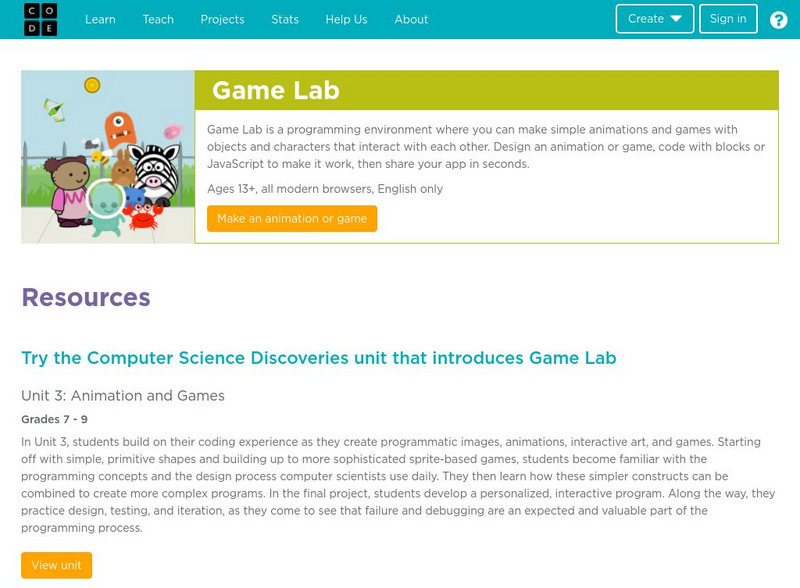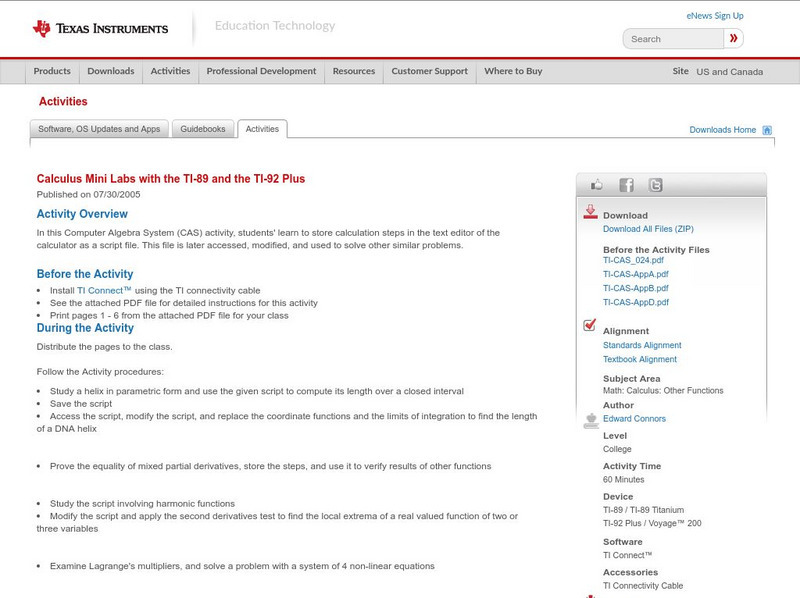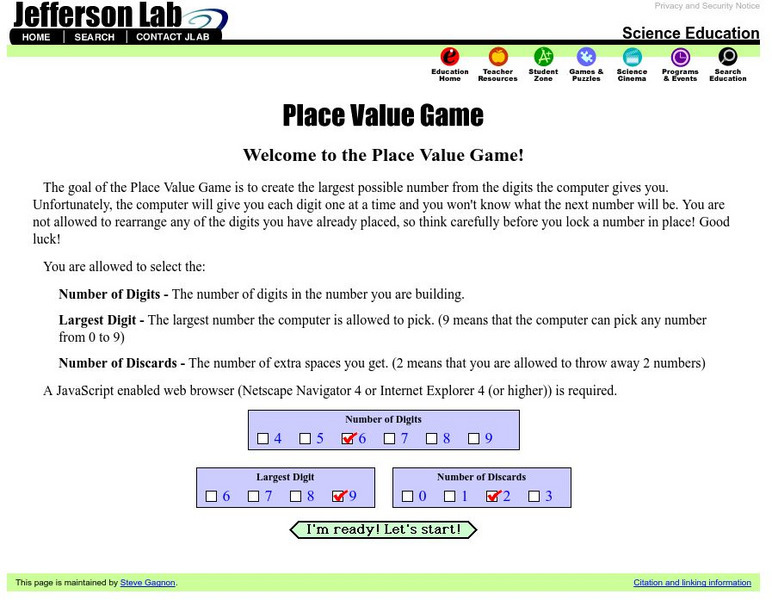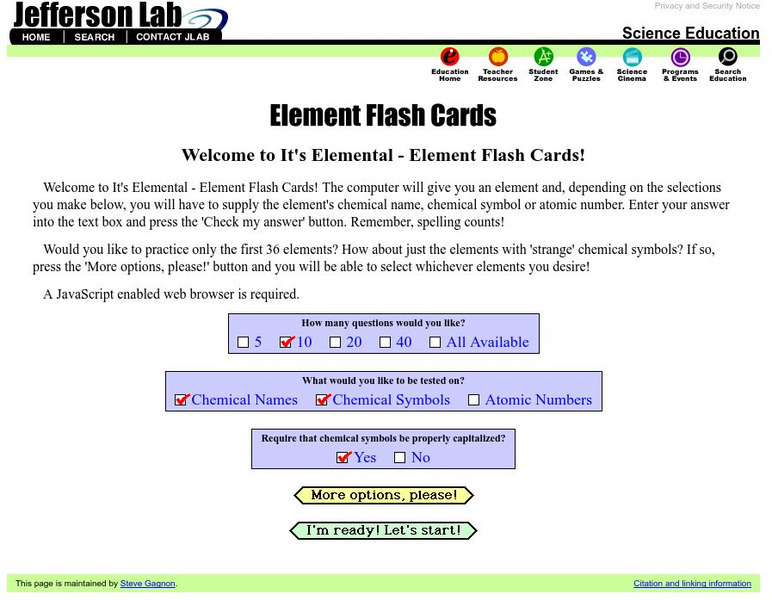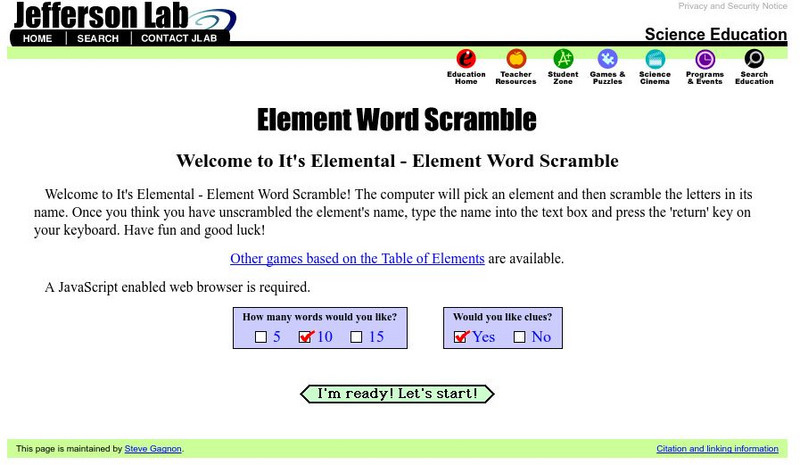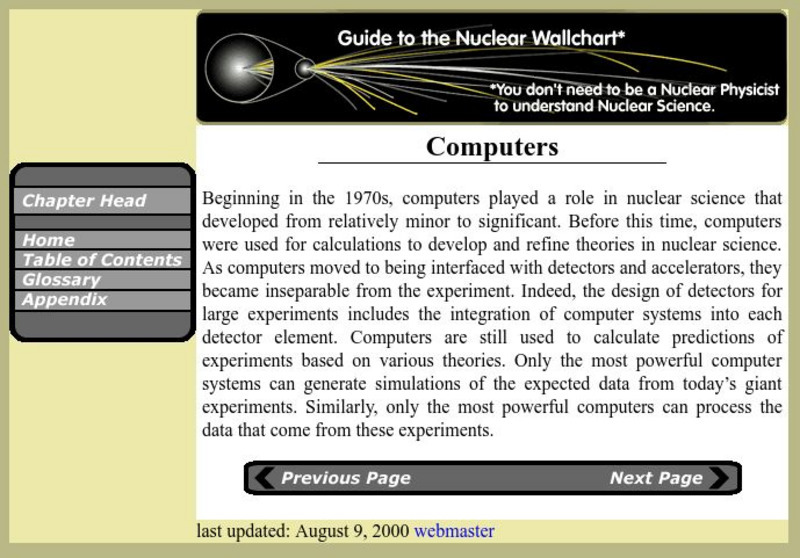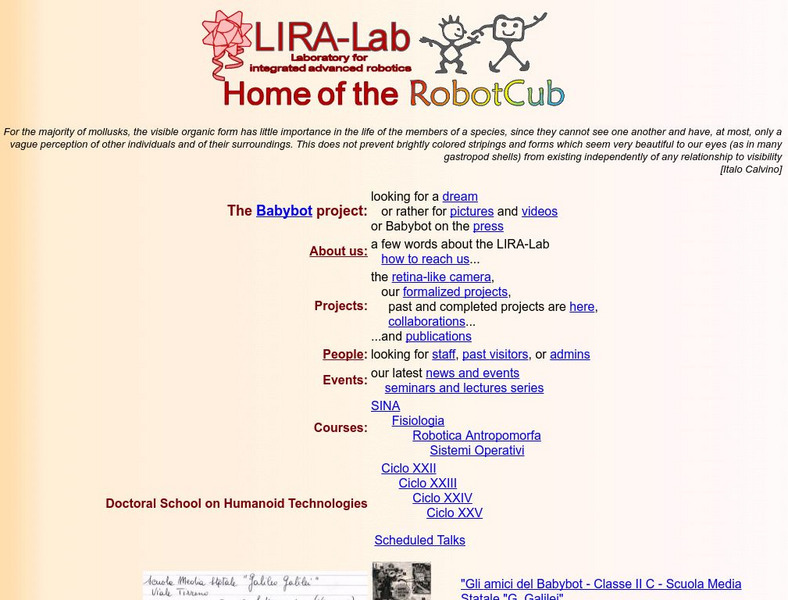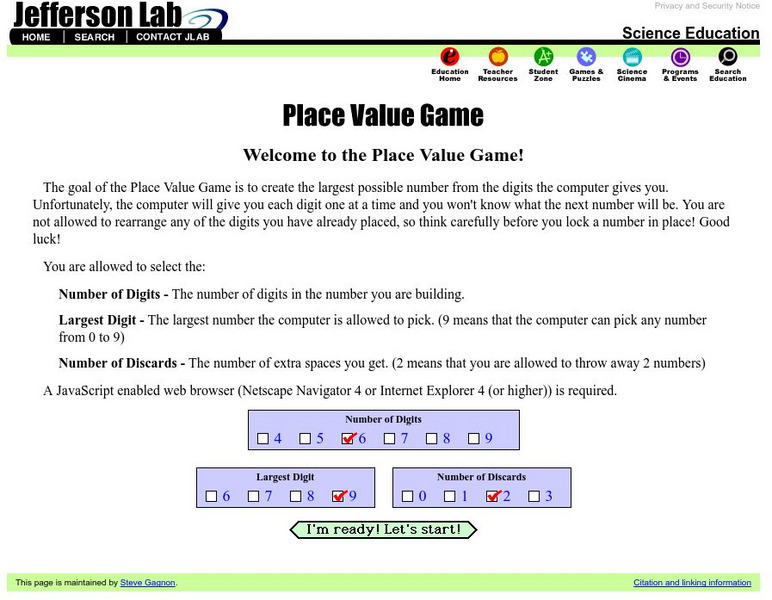University of Washington
University of Washington: Equal Access Computer Labs
As increasing numbers of people with disabilities pursue educational opportunities that require computer use, accessibility of computing facilities becomes even more critical. The key is simply equal access. Everyone who needs to use a...
Other
Microsoft Research: Fuse Labs: Kodu Game Lab
Using an artistic visual language, Kodu helps students create a world and an actual video game within that world. Learn basic coding and programming principles. Download the game lab or teacher lesson plans for free.
PBS
Wnet: Thirteen: Ntti: Managing Students With Computers Best Practices
Explore ideas on the best practices for integrating computer technology into your classroom. Investigate whole-class presentations, computer teams, independent work, and special issues and challenges in the computer classroom.
Other
Graphics Visualization & Usability Center: Animation Lab
A university-level article describing complex computer animation techniques used to simulate human motion. Includes helpful images.
Code.org
Code.org: Game Lab
Game Lab is a programming environment where you can make simple animations and games with objects and characters that interact with each other. Design an animation or game, code with blocks or JavaScript to make it work, then share your...
Code.org
Code.org: App Lab
App Lab is a programming environment where you can make simple apps. Design an app, code in JavaScript with either blocks or text, then share your app in seconds. Start with a blank project, explore the sample apps and take the challenge...
Texas Instruments
Texas Instruments: Calculus Mini Labs With the Ti 89 and the Ti 92 Plus
In this Computer Algebra System (CAS) activity, students learn to store calculation steps in the text editor of the calculator as a script file. This file is later accessed, modified, and used to solve other similar problems.
Thomas Jefferson National Accelerator Facility
Jefferson Lab: Place Value Game
This interactive math game lets you create the largest number possible as the computer gives you numbers.
Thomas Jefferson National Accelerator Facility
Jefferson Lab: Element Flash Cards
Quiz yourself over the table of elements! The computer will give you an element and, depending on the selections you make below, you will have to supply the element's chemical name, chemical symbol or atomic number. Enter your answer...
Thomas Jefferson National Accelerator Facility
Jefferson Lab: Balancing Act!
The computer will give you a number of incomplete chemical equations. Balance the chemical equations by selecting coefficients from the pull-down menus. Once you think the equation is balanced, press the 'Check my answer!' button.
Thomas Jefferson National Accelerator Facility
Jefferson Lab: Element Word Scramble
The computer will pick an element and then scramble the letters in its name. Once you think you have unscrambled the element's name, type the name into the text box and press the 'return' key on your keyboard. A clue is included to help...
Thomas Jefferson National Accelerator Facility
Jefferson Lab: Element Matching Game
The computer will give you a list of chemical symbols and a list of chemical names. Choose the chemical name that each chemical symbol represents. Press the 'Check my answers!' button after you have made your choices.
Lawrence Berkeley National Laboratory
Berkeley Lab: Computers
A brief discussion of the role computers plays in nuclear science.
Other
Lira Lab: Laboratory for Integrated Advanced Robotics
Site of the LIRA-Lab in University of Genoa, Italy which specializes in artificial vision and sensory-motor coordination from a computational neuroscience perspective.
TeachEngineering
Teach Engineering: Peripheral Vision Lab
Students explore their peripheral vision by reading large letters on index cards. Then they repeat the experiment while looking through camera lenses, first a lens with a smaller focal length and then a lens with a larger focal length....
Thomas Jefferson National Accelerator Facility
Jefferson Lab: Place Value Game
The goal of the Place Value Game is to create the largest possible number from the digits the computer gives you. Unfortunately, the computer will give you each digit one at a time and you won't know what the next number will be. You are...
Thomas Jefferson National Accelerator Facility
Jefferson Lab: Element Hangman
How well do you know your elements? The computer will randomly pick the name of one of the elements. Use the clue to discover which element the computer picked. Be careful! Each incorrect letter you guess causes the atom man to decay.
Thomas Jefferson National Accelerator Facility
Jefferson Lab: Element Concentration
The computer will display a number of cards with the names and symbols of the elements. After you have had time to study the cards, the computer will flip them over and ask you to find a particular element. Click on the card that...
Thomas Jefferson National Accelerator Facility
Jefferson Lab: Science Vocabulary Hangman
Use the science clues to discover the computer's secret word!
Smithsonian Institution
Lemelson Center: Spark!lab: Invent a Board Game [Pdf]
Are you interested in games? Have you innovative ideas? Use your imagination to create a story-based board game with inspiration from two early computer game designers.
Thomas Jefferson National Accelerator Facility
Jefferson Lab: Mystery Math
Amaze your friends with this number trick! Mystery Math is a number game that allows you to guess another person's secret number. If you want to play Mystery Math with the computer, you will need a pencil, a piece of paper and a...
Thomas Jefferson National Accelerator Facility
Jefferson Lab: Speed Math Deluxe
The goal of SpeedMath Deluxe is to create an equation, as quickly as possible, from the four digits the computer gives you. You can use addition, subtraction, multiplication and division to create your equation, but you are not allowed...
Thomas Jefferson National Accelerator Facility
Jefferson Lab: Elemental Balancing Act!
Welcome to It's Elemental - Balancing Act! The computer will give you a number of incomplete chemical equations. Balance the chemical equations by selecting coefficients from the pull-down menus. Once you think the equation is balanced,...





